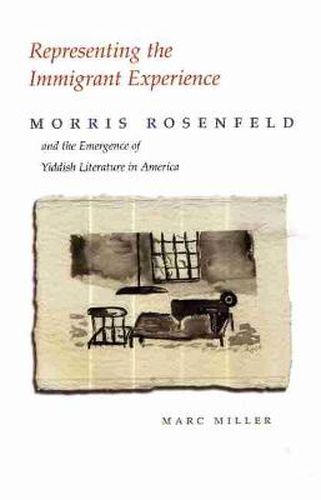Readings Newsletter
Become a Readings Member to make your shopping experience even easier.
Sign in or sign up for free!
You’re not far away from qualifying for FREE standard shipping within Australia
You’ve qualified for FREE standard shipping within Australia
The cart is loading…






Popular authors such as Sholem Aleichem and Sholem Asch gained multilingual fame in the early decades of the twentieth century with short stories and novels that represented a world foreign to many Jewish and non-Jewish readers alike. But the first Yiddish writer to serve successfully as an interpreter and representative of this world was Morris Rosenfeld. Marc Miller examines the career of Rosenfeld, a key figure in the development of Yiddish literature geared to American immigrants in the late 1800s and early 1900s. Rosenfeld’s early
sweatshop
poems were designed to foment discontent with capitalism on the part of the working class. Although he began his career as a protest poet, Rosenfeld - with almost no Yiddish literary tradition to draw upon - soon moved beyond the narrow, propagandistic dimensions of his early work to produce some of the most lasting poetry in the Yiddish language. He abandoned his calls-to-arms and shifted the focus of his poetry to the immigrant self.
$9.00 standard shipping within Australia
FREE standard shipping within Australia for orders over $100.00
Express & International shipping calculated at checkout
Popular authors such as Sholem Aleichem and Sholem Asch gained multilingual fame in the early decades of the twentieth century with short stories and novels that represented a world foreign to many Jewish and non-Jewish readers alike. But the first Yiddish writer to serve successfully as an interpreter and representative of this world was Morris Rosenfeld. Marc Miller examines the career of Rosenfeld, a key figure in the development of Yiddish literature geared to American immigrants in the late 1800s and early 1900s. Rosenfeld’s early
sweatshop
poems were designed to foment discontent with capitalism on the part of the working class. Although he began his career as a protest poet, Rosenfeld - with almost no Yiddish literary tradition to draw upon - soon moved beyond the narrow, propagandistic dimensions of his early work to produce some of the most lasting poetry in the Yiddish language. He abandoned his calls-to-arms and shifted the focus of his poetry to the immigrant self.